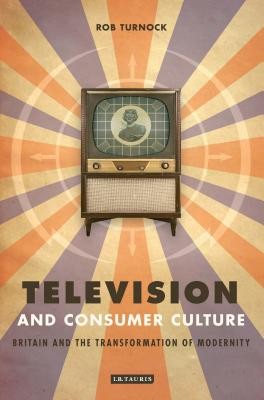
- We will send in 10–14 business days.
- Author: Robert Turnock
- Publisher: I. B. Tauris & Company
- Year: 2007
- Pages: 224
- ISBN-10: 184511079X
- ISBN-13: 9781845110796
- Format: 15.6 x 23.4 x 1.4 cm, softcover
- Language: English
- SAVE -10% with code: EXTRA
Reviews
Description
The radical expansion of television broadcasting in the post-war years and beyond both reflected and promoted a cultural revolution sweeping across British society. Reaching out to a mass audience for the first time, the new television industry made visible the transition from drab austerity and seeming cultural consensus to the brash, heady glitz and individualism of the new consumer age."Television and Consumer Culture" explores television's institutional, technological and programming developments during this period, revealing how genres as different as action adventure series, serious dramas, situation comedies and quiz and game shows simultaneously promoted both consumer culture and class conflict. Drawing on historical analysis and sociological theory, and looking at issues such as celebrity, scheduling, intimacy and sociability, Turnock argues that television during this era established and promoted itself as a culturally powerful force, a fact that has implications for the way that media power is understood to operate today.
EXTRA 10 % discount with code: EXTRA
The promotion ends in 18d.18:49:03
The discount code is valid when purchasing from 10 €. Discounts do not stack.
- Author: Robert Turnock
- Publisher: I. B. Tauris & Company
- Year: 2007
- Pages: 224
- ISBN-10: 184511079X
- ISBN-13: 9781845110796
- Format: 15.6 x 23.4 x 1.4 cm, softcover
- Language: English English
The radical expansion of television broadcasting in the post-war years and beyond both reflected and promoted a cultural revolution sweeping across British society. Reaching out to a mass audience for the first time, the new television industry made visible the transition from drab austerity and seeming cultural consensus to the brash, heady glitz and individualism of the new consumer age."Television and Consumer Culture" explores television's institutional, technological and programming developments during this period, revealing how genres as different as action adventure series, serious dramas, situation comedies and quiz and game shows simultaneously promoted both consumer culture and class conflict. Drawing on historical analysis and sociological theory, and looking at issues such as celebrity, scheduling, intimacy and sociability, Turnock argues that television during this era established and promoted itself as a culturally powerful force, a fact that has implications for the way that media power is understood to operate today.


Reviews